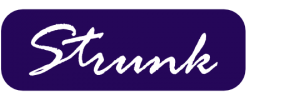Using ODP Manager to Review Your Overdraft Privilege Program Information
Strunk’s hosted ODP Manager software is updated daily with information contained in an extract file generated from your core system. After the daily import, users can generate letters, review management reports, and access additional information to effectively manage a compliant ODP program.
Percent of accounts with an assigned overdraft limit and percent of accounts opted in for Regulation E are important metrics to monitor for the success of an ODP Program. This importance is highlighted on the Dashboard which is displayed after each ODP Manager login. Trends in the Percent with Limit and Percent Opt In are shown over several months. Monthly benchmarks for the Percent with Limit and Percent Opt In are compared to other Strunk clients by the 25th, 50th, and 75TH percentiles. Overdraft Fee and Overdraft Limits are also benchmarked against other Strunk client percentiles. The Utilization Analysis report and the Opt-In Impact report allow users to further review the percentages summarized by branch and by deposit product.
On reports that include account-level details, users can apply filters or select groups to further examine data. Once the filters are applied, the filtered results can be exported to PDF or Excel for additional review or discussion. Reports that show account details include Overdraft Aging, New Accounts, ODP Status Tracking, Fresh Start Tracking, and ODP Heavy Users.
In the Account Inquiry area in ODP Manager, users can apply column filters and groups. If users need to create a list of accounts meeting certain criteria, Account Inquiry gives them the flexibility to build the list and export it to Excel. This flexibility allows users to access all the data included and mapped from the daily import file.
ODP Manager also allows users the ability to search for specific events that occur during a date range. This can help users compile a list of letters sent, OD limits assigned or removed, or Reg E opt ins or opt outs.
If you have any questions about ways to view or export the data in hosted ODP Manager, please contact Strunk Support at support@strunkaccess.com for more details.


